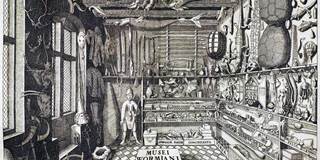In 2017, lies have become “products,” and mendacity has embedded itself into social, political, and even cultural life. The challenge for our time, then, is to find truth amid humanity’s infinite complexities and contradictions.
VENICE – Claudio Magris is one of Italy’s – indeed, Europe’s – most graceful and compelling modern writers. He is the author of more than a hundred books, and has been awarded high literary honors in many countries. His novel Blameless, newly published in English, should not be interpreted as anticipating Donald Trump’s presidency, because such a cosmopolitan and refined author would not wish to give Trump a first – let alone a second – thought. But, as Anne Milano Appel writes in her introductory note to this English translation, Magris is always “after the truth”; and truth is precisely what seems to have gone missing in an era in which Trump’s election was possible.
Magris’s literary fecundity makes classifying his work difficult, if not impossible. But even if his novels, stories, essays, and scholarly and journalistic writings do not share a single predominant theme, they are clearly concerned with the topic of identity, and the challenge of living with one’s true self.
Indeed, Magris has explored truth and identity across different historical periods, territories, religions, and ideologies – domains that clash and mix with one another. He has conducted this search with lucidity and undaunted humanism at least since his 1977 book on Joseph Roth, Lontano da dove (Away from Where), his famous travelogue-cum-history Danube, his earlier novel Microcosmi, and in his daily journalism. In all of Magris’s work, there is a deep spiritual commitment to truth and human solidarity. It is not by chance that, in a recent conversation with Appel, he singled out “love” as the crucial etymological component of “philology.”

VENICE – Claudio Magris is one of Italy’s – indeed, Europe’s – most graceful and compelling modern writers. He is the author of more than a hundred books, and has been awarded high literary honors in many countries. His novel Blameless, newly published in English, should not be interpreted as anticipating Donald Trump’s presidency, because such a cosmopolitan and refined author would not wish to give Trump a first – let alone a second – thought. But, as Anne Milano Appel writes in her introductory note to this English translation, Magris is always “after the truth”; and truth is precisely what seems to have gone missing in an era in which Trump’s election was possible.
Magris’s literary fecundity makes classifying his work difficult, if not impossible. But even if his novels, stories, essays, and scholarly and journalistic writings do not share a single predominant theme, they are clearly concerned with the topic of identity, and the challenge of living with one’s true self.
Indeed, Magris has explored truth and identity across different historical periods, territories, religions, and ideologies – domains that clash and mix with one another. He has conducted this search with lucidity and undaunted humanism at least since his 1977 book on Joseph Roth, Lontano da dove (Away from Where), his famous travelogue-cum-history Danube, his earlier novel Microcosmi, and in his daily journalism. In all of Magris’s work, there is a deep spiritual commitment to truth and human solidarity. It is not by chance that, in a recent conversation with Appel, he singled out “love” as the crucial etymological component of “philology.”